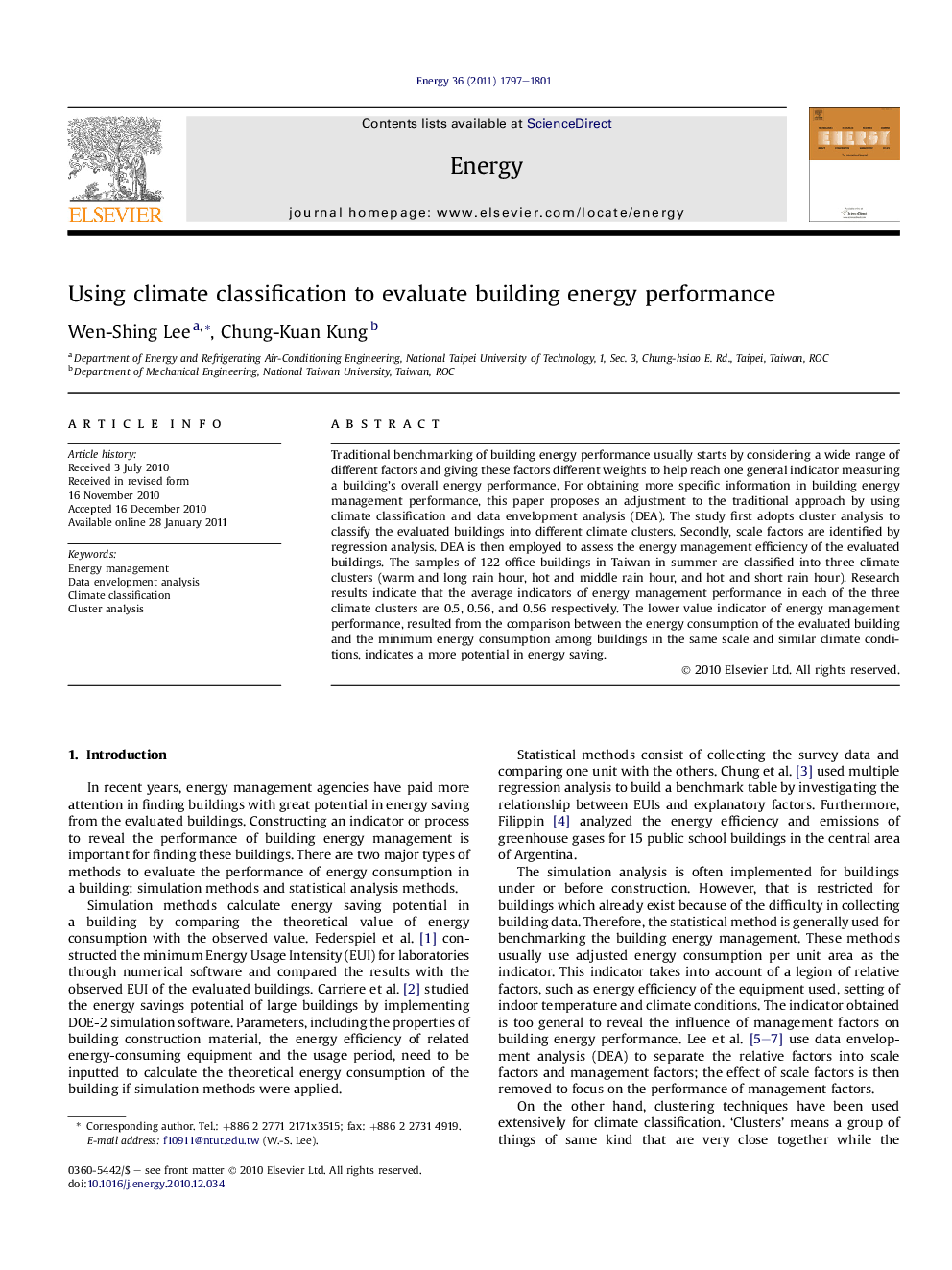| Article ID | Journal | Published Year | Pages | File Type |
|---|---|---|---|---|
| 1735143 | Energy | 2011 | 5 Pages |
Traditional benchmarking of building energy performance usually starts by considering a wide range of different factors and giving these factors different weights to help reach one general indicator measuring a building’s overall energy performance. For obtaining more specific information in building energy management performance, this paper proposes an adjustment to the traditional approach by using climate classification and data envelopment analysis (DEA). The study first adopts cluster analysis to classify the evaluated buildings into different climate clusters. Secondly, scale factors are identified by regression analysis. DEA is then employed to assess the energy management efficiency of the evaluated buildings. The samples of 122 office buildings in Taiwan in summer are classified into three climate clusters (warm and long rain hour, hot and middle rain hour, and hot and short rain hour). Research results indicate that the average indicators of energy management performance in each of the three climate clusters are 0.5, 0.56, and 0.56 respectively. The lower value indicator of energy management performance, resulted from the comparison between the energy consumption of the evaluated building and the minimum energy consumption among buildings in the same scale and similar climate conditions, indicates a more potential in energy saving.
Research highlights► This paper uses clustering method and climate station data to overcome the difficulty of the large collection of correct climate data of evaluated buildings. ► Using temperature and rain hour as clustering factors, the evaluated buildings could be divided into different climate groups. ► The floor area and the number of occupants are used as scale factors in the evaluation of building energy management performance. ► The average indicators of energy management performance in each of the three climate clusters are 0.5, 0.56, and 0.56.
